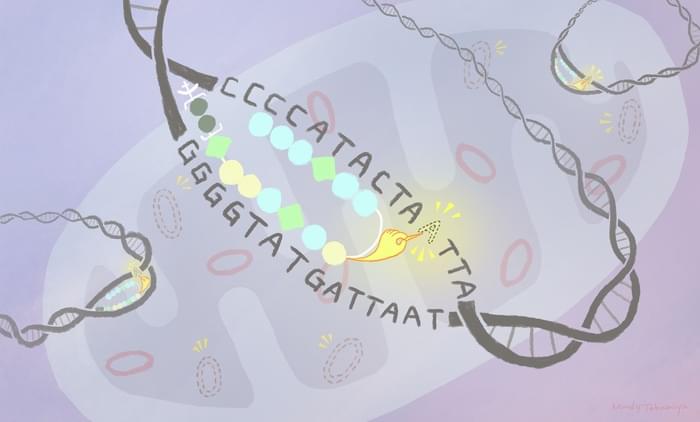Mitochondrial DNA diseases are common neurological conditions caused by mutations in the mitochondrial genome or nuclear genes responsible for its maintenance. Current treatments for these disorders are focused on the management of the symptoms, rather than the correction of biochemical defects caused by the mutation. Now, scientists at Kyoto University’s Institute for Integrated Cell-Material Science (iCeMS) in Japan report a new approach where mutant DNA sequences inside cellular mitochondria can be eliminated using a bespoke chemical compound. The approach may lead to better treatments for mitochondrial diseases.
Their findings are published in the journal Cell Chemical Biology in a paper titled, “Targeted elimination of mutated mitochondrial DNA by a multi-functional conjugate capable of sequence-specific adenine alkylation.”
“Mutations in mitochondrial DNA (mtDNA) cause mitochondrial diseases, characterized by abnormal mitochondrial function,” the researchers wrote. “Although eliminating mutated mtDNA has potential to cure mitochondrial diseases, no chemical-based drugs in clinical trials are capable of selective modulation of mtDNA mutations. Here, we construct a class of compounds encompassing pyrrole-imidazole polyamides (PIPs), mitochondria-penetrating peptide, and chlorambucil, an adenine-specific DNA-alkylating reagent.”
